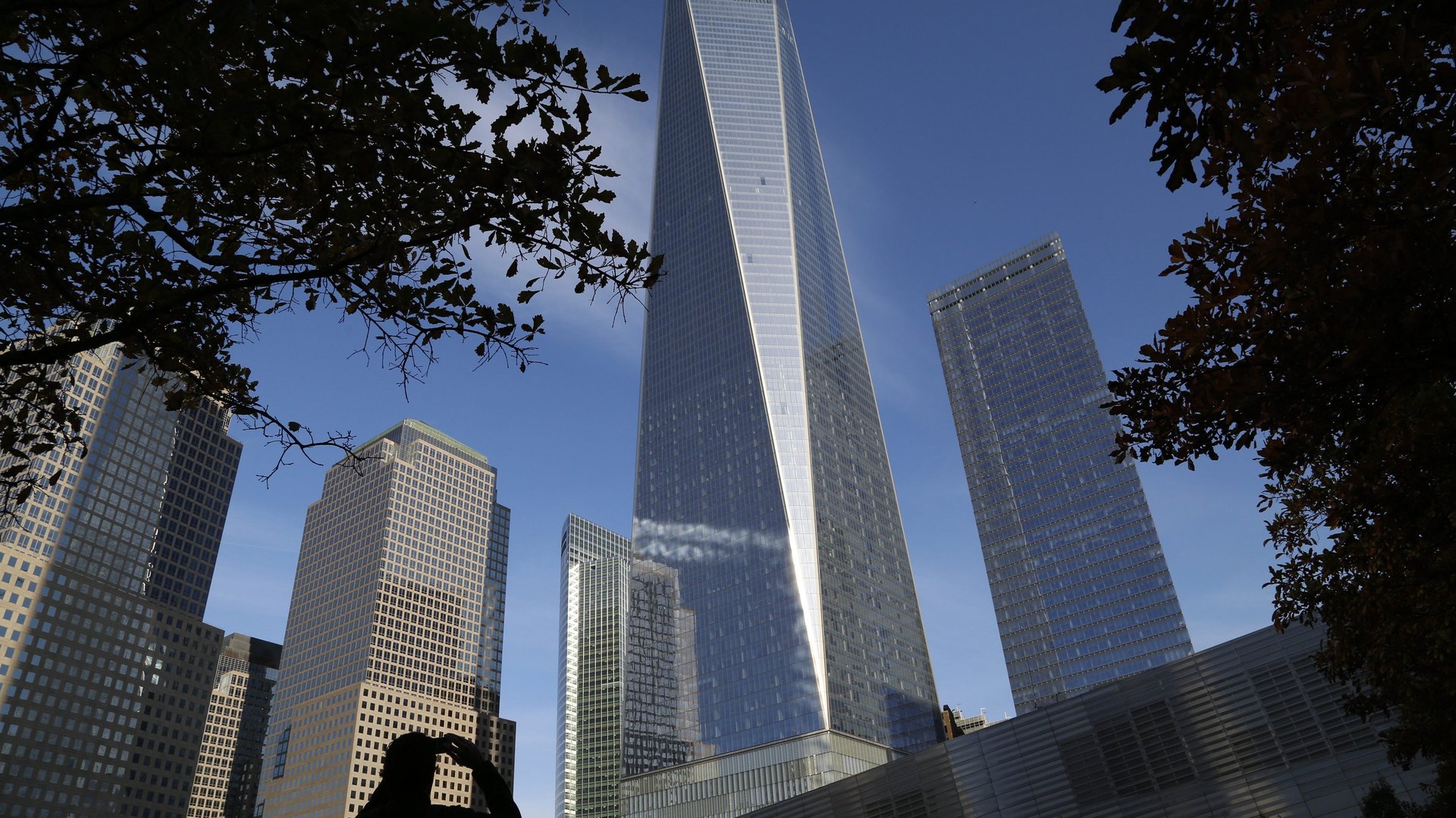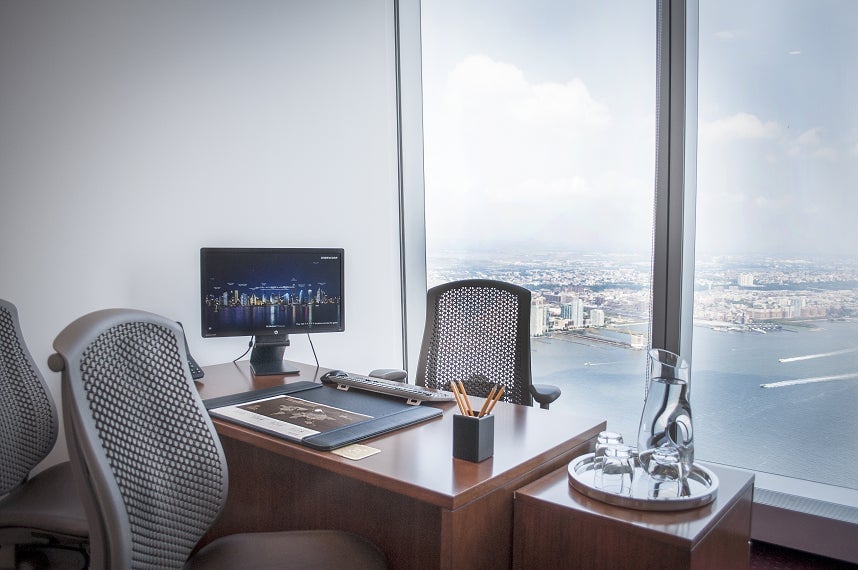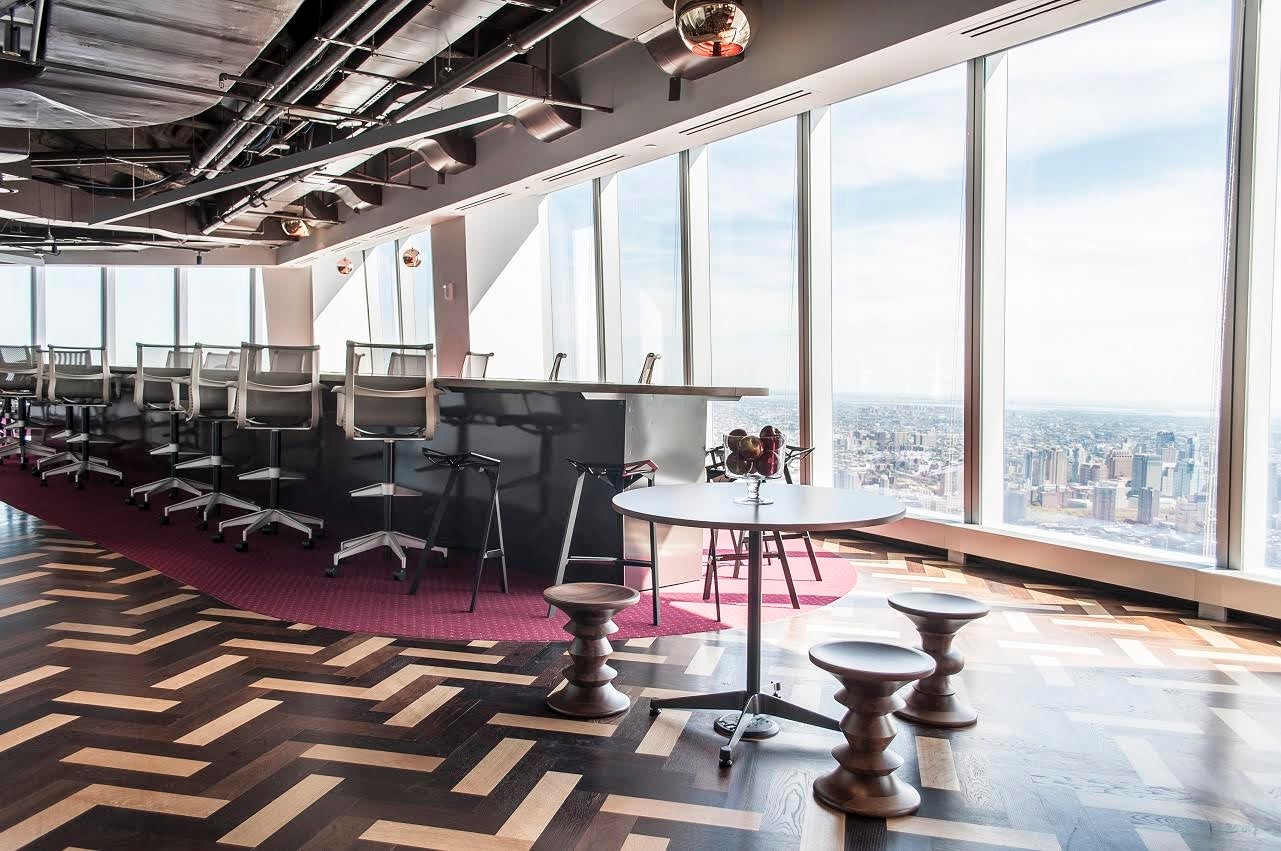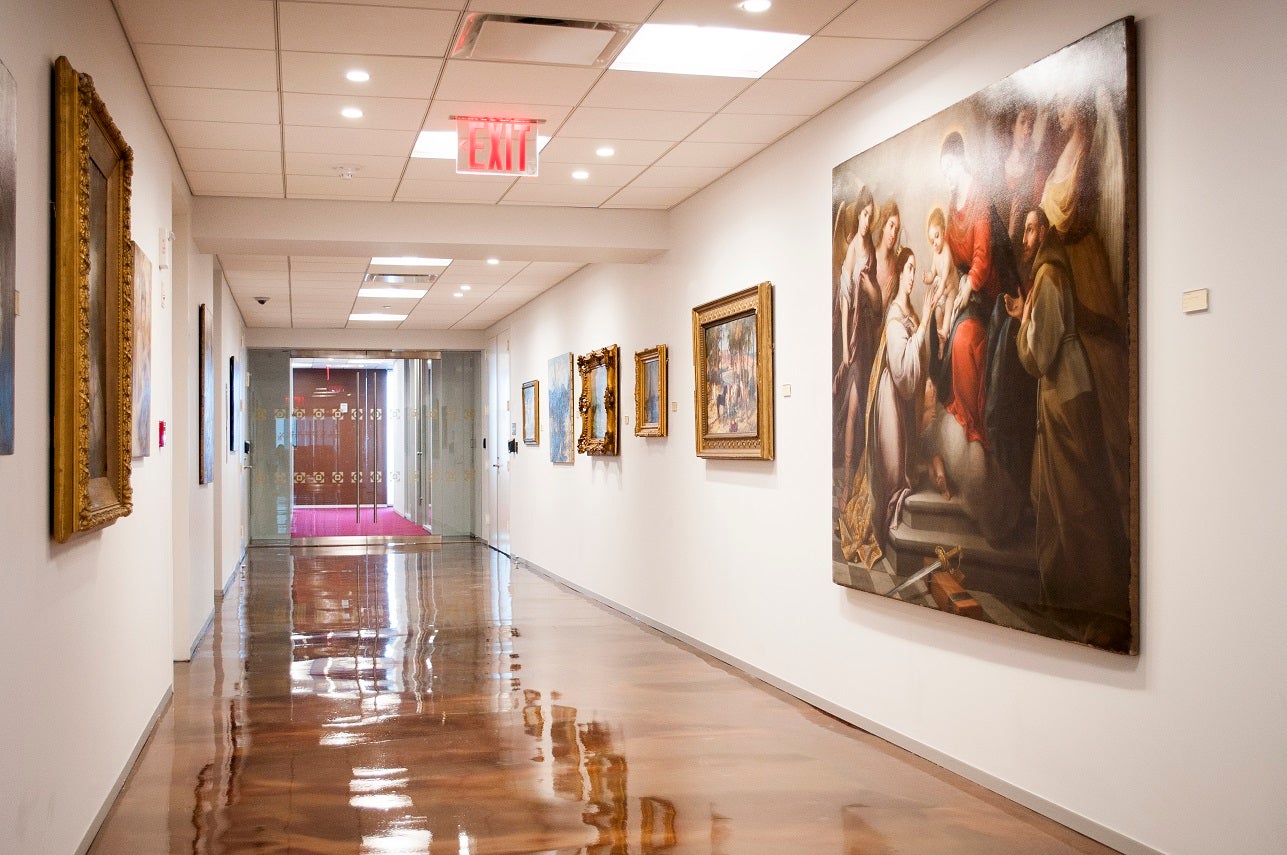A co-working company channels the psychological power of the world’s most prestigious addresses
There are no ping pong tables, no baristas on standby, no fruit water dispensers or meditation rooms at Servcorp. The 39-year-old company, which rents out space in some of the most iconic office buildings around the world, is a haven for those wary of the frenetic, networking-oriented shared office spaces that many freelancers are familiar with. Servcorp calls what it offers “co-working for grownups.”


There are no ping pong tables, no baristas on standby, no fruit water dispensers or meditation rooms at Servcorp. The 39-year-old company, which rents out space in some of the most iconic office buildings around the world, is a haven for those wary of the frenetic, networking-oriented shared office spaces that many freelancers are familiar with. Servcorp calls what it offers “co-working for grownups.”
Founded in 1978, the Australian company rents desks and offices, and provides virtual administrative services to 35,000 businesses in 54 cities around the world. Start-ups and small businesses can snag a spot at One World Trade Center in New York City, the Mies van der Rohe designed Seagram Building, the Leadenhall Building (called ”the Cheesegrater” by locals) in London, Ethiad Towers in Abu Dhabi, even at Louis Vuitton’s headquarters in Paris—for rates comparable or lower than a WeWork membership. A private office at the World Trade Center in Manhattan, for example, goes for $1,000 a month, and a virtual office package is $500. The leanest start-ups can opt for a $250-a-month membership which gives them an address at the landmark building where companies including Conde Nast, Hyundai, and Lehman Brothers also rent space.

Servcorp’s business has quietly hummed along for decades, distinguishing itself with personalized membership amenities not offered by its competitor Regus, the largest flexible office space provider in the world. But Servcorp is now also threatened by upstarts such as Soho House, Neue House, and WeWork, the seven-year-old start-up whose swift global expansion to 33 cities was recently bolstered by a $3 billion investment from Softbank. Servcorp’s website now has a dedicated page extolling its point-by-point advantage over WeWork.
Servcorp has thrived based on the premise that a prestigious office address gives new businesses a leg up, says Servcorp’s COO, Marcus Moufarrige, who relocated from Sydney to New York City last month to defend the company’s turf.
It’s all about first impressions, he explains. “A recognizable address creates a great impression of stability, of strength and permanence,” says Moufarrige, who signed a 15-year lease for the 85th floor of One World Trade Center (a.k.a. the Freedom Tower) in 2014. “There’s a reason, for example, why banks in the old days built these granite buildings. They want to look strong and wealthy, and [convince clients that] it’s a good, safe place to have your money.”
That’s true, says environmental psychologist Sally Augustin: “We pick up on this symbolic communication all the time,” explains Augustin. Clients start making assumptions based on a company’s address even before the first meeting. A businesses’s neighborhood, its building’s architectural style, and the lobby all convey certain messages to a prospective client or employee. “They’re picking up clues along the way as they make their way to the receptionist’s desk,” she explains.
Co-working for grown-ups
With granite floors and oil paintings on the wall, Servcorp’s co-working spaces exude formality. There is also a dress code. “If someone rolls in in flip flops right now, I’d probably have a word with him,” says Moufarrige.

Fintech startup FastFin rents offices in One World Trade Center, and the company appreciates Servcorp’s grownup rules. “We get top execs from big banks and we need something that looks vibrant, energetic, and also something that looks professional,” says FastFin co-founder Emin Tatosian. “The last thing we want is somebody running around with a nerf gun shooting at our clients.”
His partner Richard Leader says the company has also been able to rely on Servcorp’s team to answer calls and help out with administrative work in a pinch. “If that wasn’t there, we would have had to hire admin staff,” he says.
Professional and technology services, in fact, account for 40% of Servcorp’s revenue. They offer clients high-speed internet services, round-the-clock IT support, and call routing. “The way we see this is that it’s a cloud-based office, an elastic resource for us…We can expand and contract as needs arise,” says Tatosian. Adds Leader, “it’s such a weight off our shoulders that we don’t have to worry about accommodation.”
Design matters
Spurning the Scandinavian simplicity or hipster eclecticism of trendy co-working spaces, Moufarrige explains that his father Alfred, who founded Servcorp, has a distinct philosophy when it comes to office interiors, and the company’s spaces have the same design finishes and space layout in branches around the world. “Checkerboard granite floor has gravitas, even if it goes out of style for a while,” Moufarrige says. “The carpet is wool, which is much more expensive than carpet tiles, but will last a long time.”

Even so, Moufarrige admits to a few concessions to the prevailing co-working space trends. The company is redesigning reception areas to be “more approachable,” with more meeting spaces, and has opened five co-working spaces with open floor plans and exposed ceilings, as a nod to contemporary tastes.
Without a crack team of designers on staff, as WeWork has, some half-step aesthetic touches don’t quite work. A full-length 19th century Orientalist oil painting, for instance, seemed out of place with the exposed HVAC and graphic zig-zag floors in the collaborative space at the World Trade Center location.
And Servcorp’s website could use a design and usability upgrade, too. Its virtual office homepage, which looks a bit like a homemade open house flyer, belies the impressive network of well-appointed short-term lease offices that the company offers. Moufarrige admits that the company is coming to realize the importance of branding if it aims to compete with its new, design-savvy competitors.
How to choose among the dizzying range of co-working spaces today? Augustin, the environmental psychologist, says it’s all about what message you want to convey. A creative or innovation firm might do well in places like WeWork’s buzzy, collegiate design-inspired spaces (pdf), while a finance or law practice will fit in with ServCorp’s more conservative, buttoned-up accommodations.
“What’s really best for organizations,” Augustin advises, “is to find alignment between their marketing objectives and message sent by their building.”